Post
A catch
Save a catch to start your fishing logbook. You will be able to to share it with the community if yo want!
A fishing trip
Post an ad to go fishing with other fishermen
Save a catch to start your fishing logbook. You will be able to to share it with the community if yo want!
Post an ad to go fishing with other fishermen
Share a thought, a question with the community
My favorite cities
×Join our 439 fishermen and our 4 cofishermen in West-Grafton in Wiltshire. The fishing forecast is currently 3.9. The most caught fishes here are the minnow fish, brown trout, the chub fish and the pumpkinseed fish. Come try the most famous fishing techniques like the trolling for mackerel, roubaix fishing, toc fishing or fly fishing for trout.
Our fishing forecast of West Grafton indicates the best time to go fishing in this city.
The Minnow fish
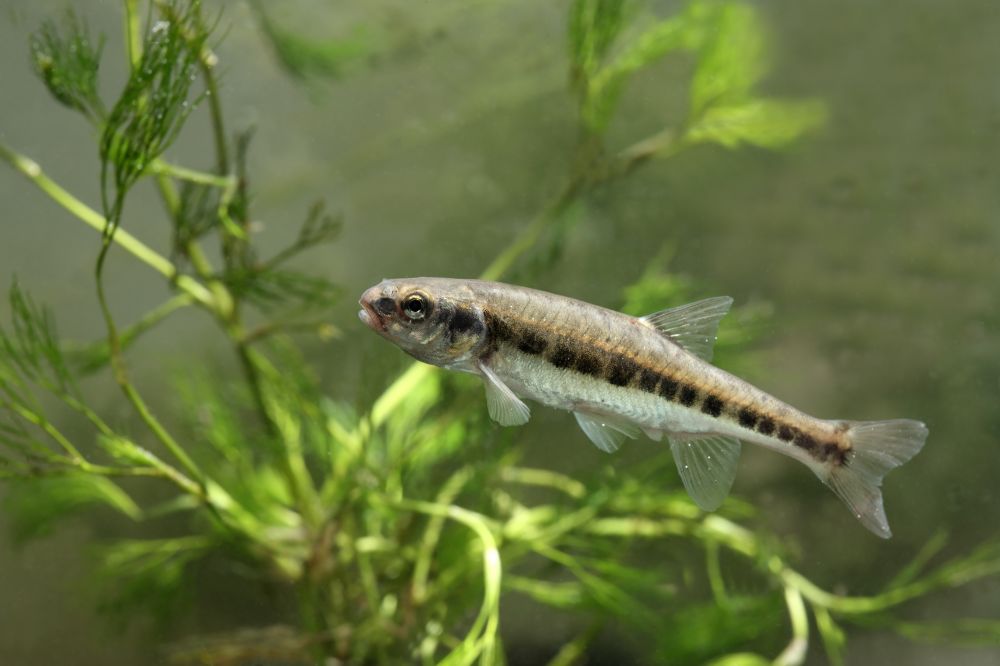
The Minnow fish belongs to the Cyprinidae family. The minnow is a small fish with a length of 4 to 10 cm (maximum 14 cm) and a weight of 3 to 10 g (rarely more than 13 g). Life expectancy is 4 to 5 years (maximum 11 years). Reproduction takes place from April to July or from one region to another. Depending on size, the female lays between 200 and 1000 eggs. It can be fished all year round. It moves in benches. It is often accompanied by trout of the same size and young salmon. The body is shaped like a spindle. The head has a rounded snout, the mouth is terminal (the upper jaw slightly protrudes from the lower jaw). The back is dark green, the upper part of the flanks is light brown with large black-brown spots (sometimes linked to form stripes), while the lower part is yellowish green with silvery highlights, the belly is creamy whitish (in spawning season, it is copper red in males). The lateral line usually only extends to half of the body. The caudal peduncle is compressed laterally. The fins are rounded and transparent. The caudal fin is clearly indented; the ridge is quite high.
The Minnow fish is a famous fish you can catch in West Grafton.Brown Trout
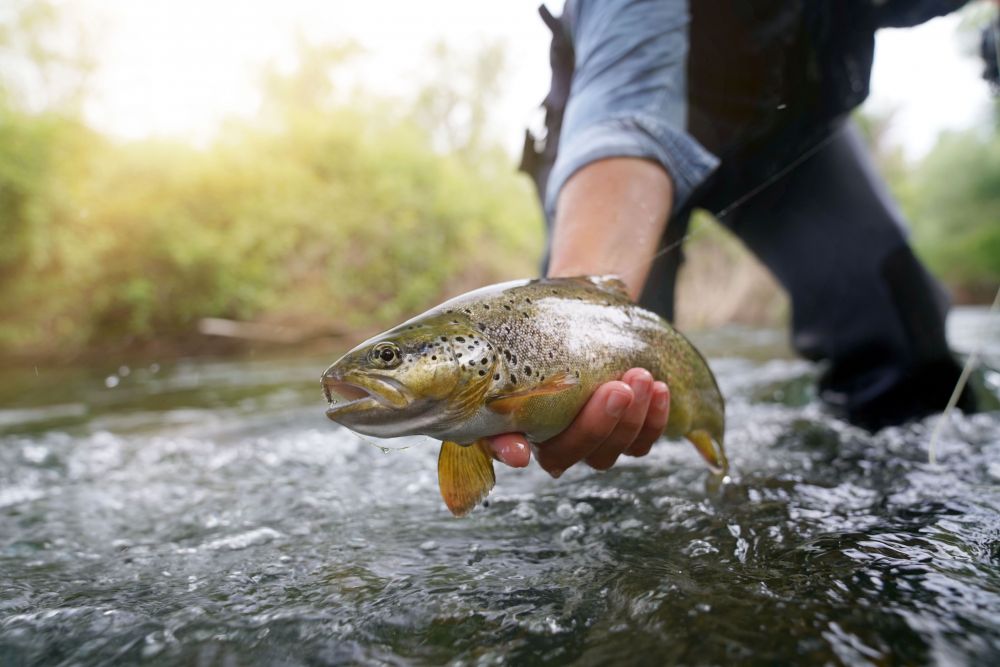
The Brown Trout belongs to the Salmonidae family. According to the location, the adult size varies from 25 cm to 80 cm for 300 to 800 g. It lives for 3 to 6 years. The spawning period starts in October and end in January. The female can lay up to 4000 eggs. The fishing period is open from the second Saturday of March until the third Sunday of September. This fish is not hard to catch but the fishing needs complex skills. Depending on its environment, the brown trout have a very variable color, but the brown trout, as its name shows, is rather brown with scattered black and red spots, depending on the spawners. It has a certain mimicry according to the bottom of its living spaces since the dominant brown will become a green dress if it lives close to the banks where yellow and even sometimes silvery white will mix. It has a "useless" adipose fin between the dorsal fin and the caudal fin. The head is tapered, strong and has a powerful jaw. Its back is a pretty black or night blue.
Brown Trout is a famous fish you can catch in West Grafton.The Chub fish
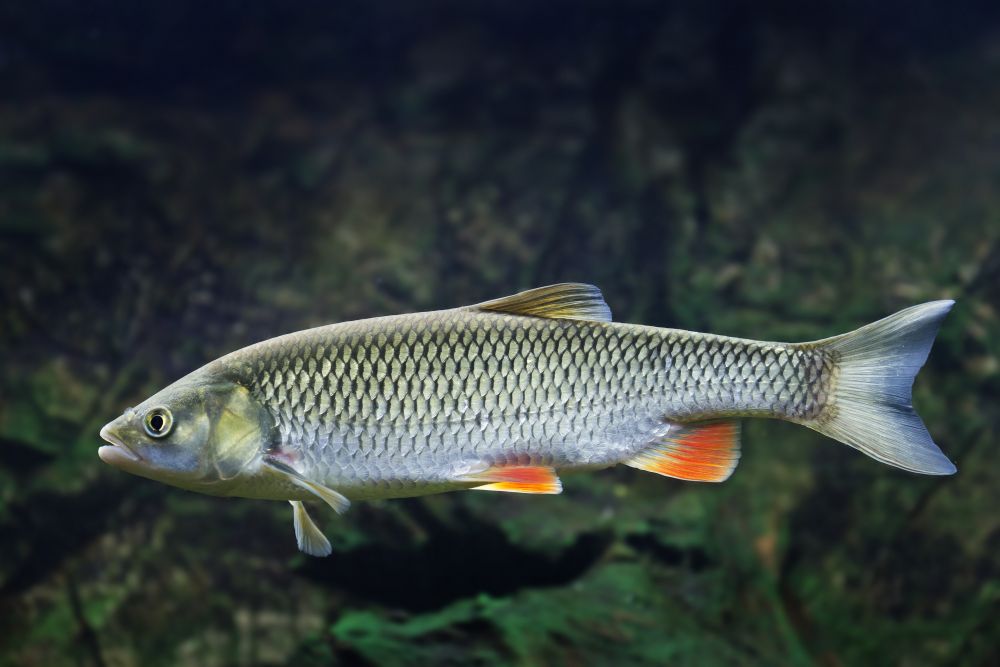
The chub fish belongs to the family of Cyprinidae. The common catch size of the chub fish varies from 15 to 30 cm, but it can reach 80 cm for a weight of 8 kg. The longevity is estimated at about ten years. The reproduction of the chub takes place between April and June. The female lays 20,000 to 100,000 eggs. It can be fished from July to Mars. The body is long and cylindrical with a terminal mouth, pointing upwards, with large lips. The big head has a flat forehead. The large, black-edged scales give it a reticulated appearance. The anal fin has a convex rear edge. The back and upper part of the head are greyish-green to brown in color; the flanks have silvery or even golden highlights; the belly is whitish. The fins are grey except for the bellies and the pale red anal fin.
The Chub fish is a famous fish you can catch in West Grafton.The Pumpkinseed fish
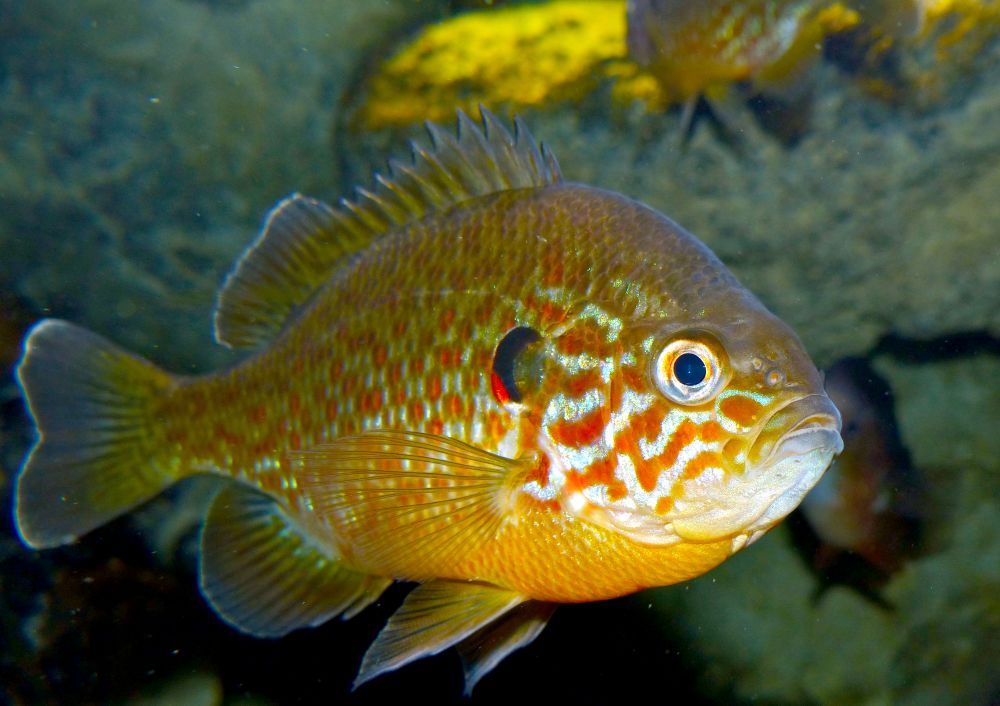
The Pumpkinseed fish belongs to the Centrarchidae family. It is a migratory fish that can reach a weight of 40 g to 50 g for a length of 20 cm. But the largest specimens can reach a weight ranging from 3 kg to 4 kg for a maximum size of 40cm. The life span of the sun perch is 8 to 10 years. Breeding takes place in the months of May to August. A female can lay between 1500 and 3000 eggs. It is fished all year round, but the best times are in spring and autumn. Its high body is very flat laterally. Its mouth is terminal, small and slightly oblique. The caudal fin is slightly forked. The two dorsal fins are united, giving the impression of being one. The pectoral muscles are long and pointed. The anal fin has 3 sharp spines. The coloring is brilliant with green and blue touches on the back and rust colored spots on the flank. The cheeks are crossed by bright blue lines, particularly marked in males. The operculum is wide and has a black spot bordered by a scarlet red spot in the male, which may be absent or less marked in the female. The male is larger and more colorful than the female.
The Pumpkinseed fish is a famous fish you can catch in West Grafton.The Three Spined Stickleback
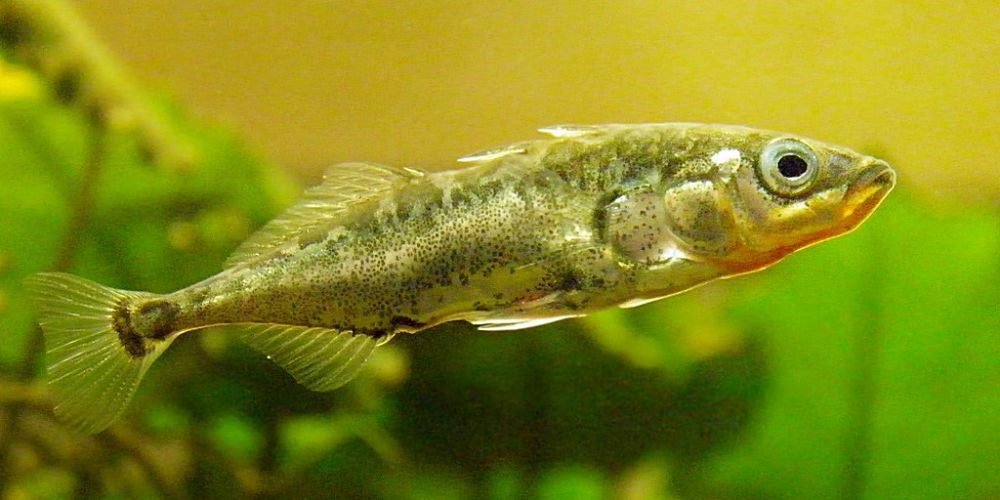
The three spined stickleback belongs to the Gasterosteidae family. The usual size of the three-spined stickleback is 4 to 5 cm for females, with males being a little smaller, about 3 to 4 cm. The life span of the three-spined stickleback varies from 3 to 5 years in natural environments and up to 8 years in captivity. Spawning season extends from March to June. Fertility is 200 to 400 eggs. It is fished from June to March. The three-spined stickleback is a tiny fish with a tapered, laterally compressed body. Its head is quite small, with fairly large eyes, and ends in a narrow mouth that is slightly oriented forward and upwards. The caudal peduncle of the three-spined stickleback is very narrow with a slightly indented caudal fin. The long dorsal fin is set far back, plumbing the anal fin. The dorsal fin of the three-spined stickleback is preceded by three spines, two long and one short, placed on the back of the fish. A curved spine also precedes the implantation of the anal fin. The pelvic fins are replaced by two thorns. The color of this fish is greenish brown for the back, with metallic reflections, silvery for the sides and whitish for the belly. Along the lateral line of the three-spined stickleback, there are no scales but bone plates called "badges", a kind of natural shielding that accompanies the thorny defenses of this fish.
The Three Spined Stickleback is a famous fish you can catch in West Grafton.Our fishing forecast of West Grafton indicates the best time to go fishing in this city.
Our fishing forecast of West Grafton indicates the best time to go fishing in this city.
Our fishing forecast of West Grafton indicates the best time to go fishing in this city.
